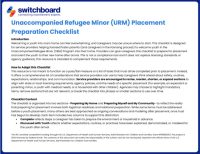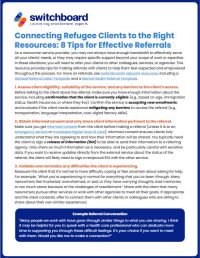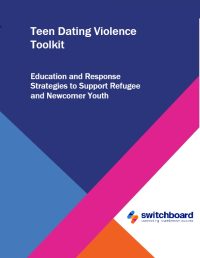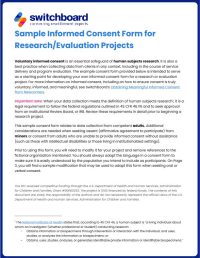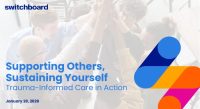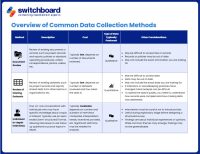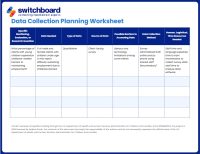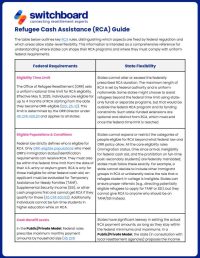Welcoming a youth into one’s home can feel overwhelming, and caregivers may be unsure where to start. This checklist is designed for service providers helping licensed foster parents (and caregivers in the licensing process) to welcome youth in the Unaccompanied Refugee Minor (URM) Program into their home. Providers can give caregivers this checklist to prepare […]

